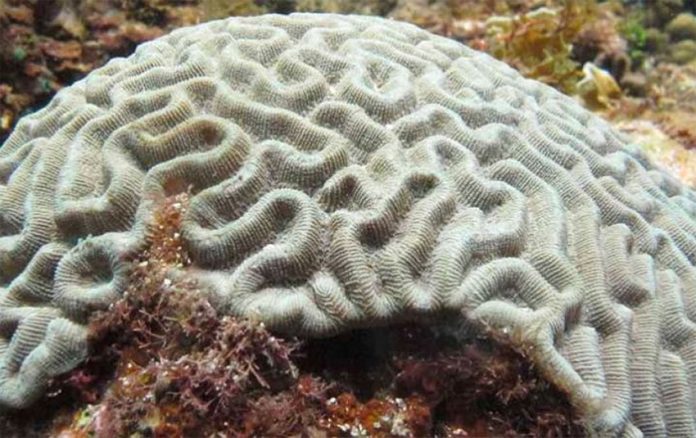Tourism service providers have protested the decision to close some of the reefs around the island of Cozumel due to the presence of a disease that destroys coral.
The Natural Protected Areas Commission (Conanp) announced this week that it will restrict access to much of the Cozumel Reefs National Marine Park beginning on October 7 because 40% of coral is affected by white band disease, an ailment that destroys the tissue of Caribbean acroporid coral.
(Mexico News Daily earlier referred to the disease as “coral bleaching,” which is in fact something else.)
The disease, which was first detected in coral reefs off the coast of the United States Virgin Islands, was noticed in reefs off Quintana Roo in 2018. The disease gets its name from the white bands of dead coral tissue that it forms.
In response to Conanp’s decision, reef tourism operators protested outside the Cozumel offices of the commission, where they claimed that close to 500 families will lose their sole source of income.
One of the protesters questioned why reefs at the Palancar and El Cielo beaches were being closed but those at the Paraíso and Chankanaab beaches were not.
In an interview with the newspaper Noticaribe, Víctor Torres acknowledged that reefs at Palancar and El Cielo are damaged but said that those at the two other beaches are even worse.
“. . . Why aren’t they closing that area?” he asked.
Torres said that authorities may have underestimated the economic impact of the decision to close some of Cozumel’s most popular reefs.
“I don’t know if they have really calculated the economic impact on all the people that work in [reef tourism]. We know that there are people with permits but there are also a lot of people that don’t have them but work [in the industry] with dignity and honesty,” he said.
Torres said that a lot of people on the island will be left without a source of income and contended that the government should pay compensation to them.
In Baja California and Yucatán, financial support was given to fishermen when fishing restrictions were imposed to protect the vaquita marina porpoise and the sea cucumber but “they’re not thinking about that here,” he said.
While the reef tourism operators recognized that the reefs are sick, they said that restricting access to them is not the solution, explaining that they take precautions to ensure that they don’t contribute to further damage.
Torres predicted that the decision will not only affect the economy but damage the island’s reputation as a tourist destination.
“. . . The state [Quintana Roo] suffers from sargassum but Cozumel is free of it and that’s why people come. By sending this message, they’ll stop coming,” he said, adding that he personally stands to lose at least 4,000 pesos (US $205) per day.
Other reef tourism operators said that tourists will chose to go to “Cuba or Belize” if they can’t dive and snorkel on Cozumel’s reefs.
The exact cause of white band disease is unknown but scientists believe that it is linked to pollution and the presence of seaweed such as sargassum in seawater.
Healthy Reefs, a group that tracks the health of the Mesoamerican Barrier Reef System, says the effect of the disease is “unprecedented” as mortality rates are high and around 20 different types of coral are susceptible to it, including brain, pillar and star corals.
Source: Noticaribe (sp), El Universal (en)
